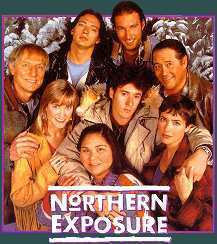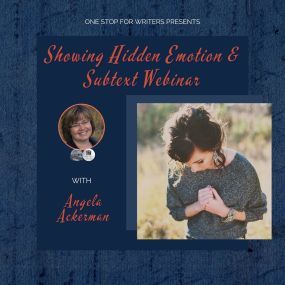Writing Process vs. Product: Do You Focus on the Doing or the Having?
Which is more important���the process of writing or the product that results? It’s not something we think much about, but as creatives, one of these two things is typically motivating us. And it’s good to know what our drivers are. I’m glad David Duhr is talking about this today, because it’s providing a lot of food for thought.
When I meet with a new book coaching client I always start our first session with two questions:
Why do you want to write a book?
Why do you want to publish a book?
Between you and me, here���s what I���m really asking: Which is more important to you, process or product?
For some writers, publishing a finished product is the only goal, the writing itself the tedious obstacle standing in the way. For others, the allure lies in the creative act, the getting there, and publication is a consideration consigned to the future, if ever.
If you���re not sure which group you belong to, contemplate this (and then let us know your answer in the comments!):
Would you rather wake tomorrow morning to find your name on the front of a pristine, freshly published book but with no recollection of having written it? Or would you prefer to relish the years-long process of writing your masterpiece, even if no one ever reads it but you?
Therapy for the Artistically Challenged
There���s an old Northern Exposure episode that does a great job of driving this point home. One of the characters, Holling, has taken up painting by number. He only mildly enjoys the hobby but is monstrously attached to the product.
When his wife, Shelly, says his latest landscape should go on their tavern���s wall, Holling says, ���You think it���s that good?��� I.e., is this painting even more impressive than he already believes it to be?!
So Holling displays the painting in the bar, opening himself up to praise but also to that thing so many of us fear so intensely: Criticism.
���Hell, that���s not painting,��� another character says with a scornful laugh. ���That���s paint-by-numbers. That���s therapy for the artistically challenged. That���s what they prescribe for cretins in dayrooms.���
Cold Ice Water & Hot FireAs artists ourselves we���re crushed on Holling���s behalf, having too-easy recall of our own ���Hell, that���s not painting��� moments. Here���s one of mine:
One day I sent my beta reader a new story. I was helplessly, hopelessly in love with it, and I knew he would be, too. I basically said as much when I sent it: ���You���re going to love this one. I think it���s the best thing I���ve ever written.���
He replied ��� in caps ��� ���I DO NOT LIKE THIS STORY.���
I imagine I looked like Holling when I read that. I almost gave up writing entirely, just like Holling vows to abandon painting.
���The more I got into [painting],��� he says to fellow artist Chris, ���the more I thought, well, maybe I���ve got a little talent.���
���Oh, and now you don���t?��� Chris says.
Those critical comments, Holling tells Chris, were like a bucket of ice water being dumped on his head.
We all know that feeling. Harsh criticism can take a writer���s breath away. The only way to avoid it is to not show your work���to undergo the process but keep to yourself the product. (At which point you have only to deal with your internal critic.)
Art ��� Is a ProcessQuasi-philosopher Chris tries to reframe the way Holling approaches his art. ���You���ve got a very basic problem,��� he says. ���You���re confusing product with process. Most people, when they criticize, they���re talking about product. Now, that���s not art ��� that���s the result of art. Art ��� is a process.���
To drive home his point, Chris drags a bewildered Holling into the basement and urges him to slide the painting into the furnace. ���It���s not your painting anymore,��� Chris says. ���It stopped being your painting the moment you finished it.���
And a reluctant Holling nudges his work into the flames.
The Doing and the HavingBy going to that extreme ��� and sometimes we must go to extremes ��� Holling learns a few lessons I���d like to learn: By not investing the whole of his artistic identity in the quality of the result, he can…
enjoy both process and product.
appreciate the product even if it’s not perfect.
recognize the progress he’s made since beginning the journey.
break free from the need for validation by others.
Fast-forward to a reinvigorated Holling again painting by number���but now happily, while giving away his products to friends.
���You���re cranking ���em out like sausages, babe,��� Shelly says.
���You know, Chris says it���s all in the doing,��� Holling says. ���Tell you the truth, I think there���s a lot to be said for the having.���

That���s the space I���d like to live in. I���m planted firmly in the process-oriented, burn-the-product-with-fire camp, but partly because I find it difficult to tolerate my finished work, and showing it fills me with dread. For example, I���ve loved writing this post, but I���m sure I���ll find the result unspeakably repugnant. So the question becomes: If I liked my writing but not the act of writing it, would I still write?
Probably. There���s no right or wrong here.
If publication is what matters to you, undertaking the process is the only way to get there. Draw whatever nourishment from it you���re able. If none, so be it.
If the process is where it���s at for you, enjoy it. Dwell in it, feed off of it. If at the end, you want to publish, cool; if not, cool. Enjoy the journey, and to hell with the destination.

But if you can find your way to appreciating both, crank ���em out like sausages and enjoy the doing and the having.
David Duhr is a writing coach and co-founder at WriteByNight, where he blogs weekly. He���s also fiction editor at the Texas Observer and a member of the Yak Babies books podcast.
You can find his writing in the Dallas Morning News, Publishing Perspectives, Electric Lit, and many others.
Need Help Showing Your Character’s Hidden Emotion? MARCH 20TH WEBINAR
MARCH 20TH WEBINAR Join Angela as she digs into a myriad of ways we can reveal what’s unspoken or hidden in dialogue exchanges and beyond, including our character’s true motivations and feelings. (If you struggle with showing fresh emotion, this is the webinar for you!)
This two-hour session is only $20. Visit the link below for more information & to register.
Hidden Emotion & Subtext: Making Dialogue Crackle with What Isn’t SaidThe post Writing Process vs. Product: Do You Focus on the Doing or the Having? appeared first on WRITERS HELPING WRITERS��.
Writers Helping Writers
- Angela Ackerman's profile
- 1014 followers



